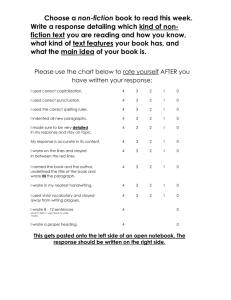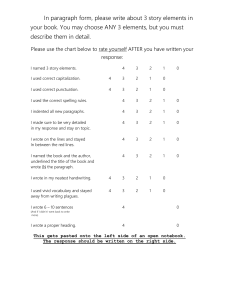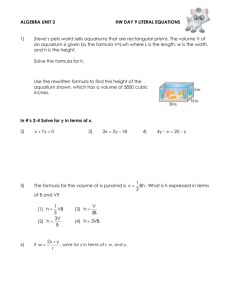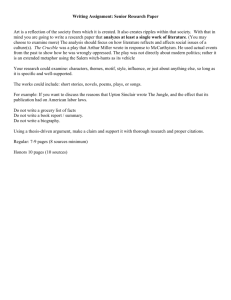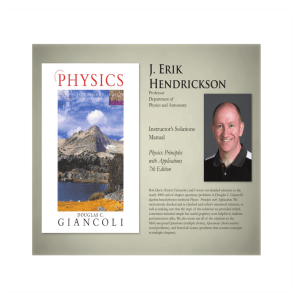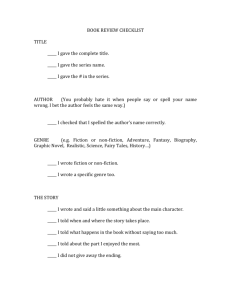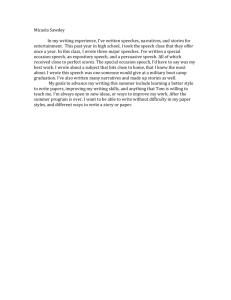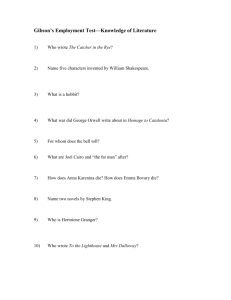File - Mrs. Adkins' Class
advertisement
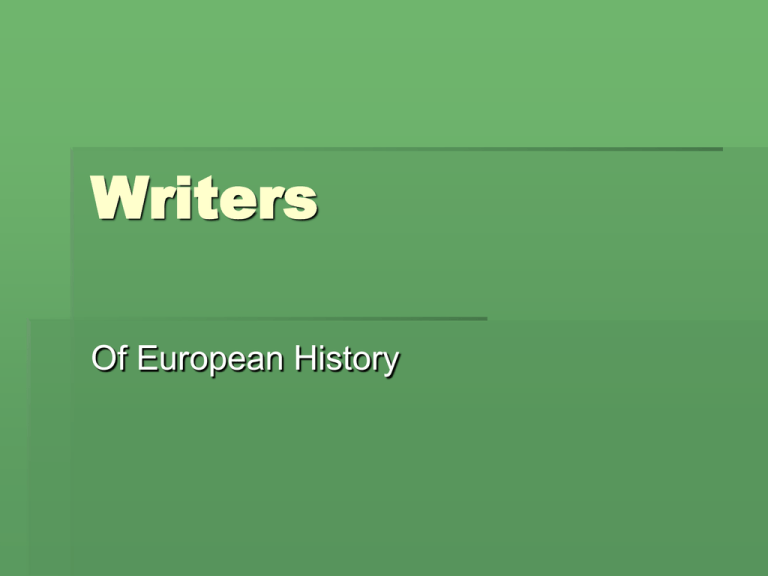
Writers Of European History Dante Wrote Divine Comedy returned to the vernacular Boccaccio Wrote the Decameron It is about people trying to escape black death. Castiglione Wrote Book of the Courtier Which is a how to book about how to behave in court Humanist loved this. 1st ‘how to’ book Erasmus Concerned with studying the bible in its original form. Wrote In Praise of Folly, which he uses to comically expose the immoral behavior of the clergy. Sir Thomas More Wrote Utopia Describes the ideal society, where everyone shares work and profit Also uses his book to criticize the current society. Rabelais Published Gargantua and Pantagruel It was a fictional tale of two gentle giants that roam countryside and get in trouble This writing was a return to fiction and also a comedy. Cervantes Wrote Don Quixote It is a story of a foolish but idealistic knight who gets in trouble roaming countryside and his serious friend, Sancho Panza, keeps him from getting in trouble. Also a comedy and heavily Catholic. Shakespeare Play writer who wrote for the masses Wrote fictional stories and to please the crowd. Work known as Elizabethan Drama because it was under Elizabeth’s reign. Martin Luther Wrote Justification by Faith His writing says everything in life has no consequence and just having faith is enough. He attacks the indulgences of the Catholic church. Posted the 95 Theses on church door which led to the Protestant Reformation John Milton English Puritan Poet Greatest 17th Century Literation Paradise Lost which is about satans revolt against God Paradise Regained which is about Jesus' temptation in the wilderness Daniel Defoe English novelist He wrote for the massive audience enjoyment Most famous work is Robinson Crusoe which is about a shipwreck sailor Also wrote Moll Flanders which is about a street woman Johnathon Swift Wrote Gulliver’s Travels The story is about a guy traveling around the world Denis Diderot Organized the first encyclopedia First one in 1751 then in 1772 with 17 volumes Combined effort of more than 100 authors Coleridge Master of Gothic poems Wrote the “The Rime of the Ancient Mariner” Also wrote “Kubla Khan” after a dream Wordsworth Coleridge’s friend Published Lyrical Ballads with Coleridge Interested in children because they were the closest to spiritual world Also interested in nature Lord Byron & Percy Shelley One of the most successful romantic poets Had many works based on the ancient Greek plays and Poems Goethe Part of the Sturm und Drang movement in Germany which emphasized emotion Published Faust, which is about a man making a pact with the devil and exchanges his soul for greater knowledge. Brothers Grimm and Dumas Collection of German tradition folk stories in Grimm’s Fairy Tales Wrote exciting tales like Count of Monte Cristo and the Three Musketeers Gustave Flaubert Wrote about the dull life of the bourgeoisie Author of Madame Bovary which is about the quest to find love and happiness He said women are bored with society Emile Zola and Henrik Ibson Favorite topics were alcoholism and prostitution Author of Doll’s House Story about a woman who is depressed and mad at husband H. G. Wells Wrote Time Machine and War of Worlds Brought science fiction to the public Very popular and thrilling to people D. H. Lawerence Wrote Lady Chatterley’s Lover graphic novel about a woman who had lover outside of marriage Huxley and George Orwell Wrote Brave New World His book was a grim picture of the future Wrote Animal Farm and 1984 Famous for criticism of totalitarian Franz Kafka Wrote Metamorphosis Also wrote All Quiet on the Western Front which is an antiwar novel written about trench warfare in WWI.
